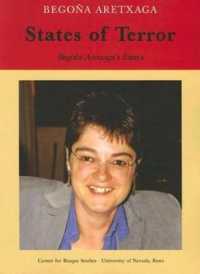- ホーム
- > 洋書
- > 英文書
- > Religion / Ethics
Full Description
In Icons of Hope: The "Last Things" in Catholic Imagination, John Thiel, one of the most influential Catholic theologians today, argues that modern theologians have been unduly reticent in their writing about "last things": death, judgment, heaven, and hell. Beholden to a historical-critical standard of interpretation, they often have been reluctant to engage in eschatological reflection that takes the doctrine of the "last things" seriously as real events that Christians are obliged to imagine meaningfully and to describe with some measure of faithful coherence. Modern theology's religious pluralism leaves room for a speculative style of interpretation that issues in icons of hope—theological portraits of resurrected life that can inform and inspire the life of faith.
Icons of Hope presents an interpretation of heavenly life, the Last Judgment, and the communion of the saints that is shaped by a view of the activity of the blessed dead consistent with Christian belief in the resurrection of the body, namely, the view that the blessed dead in heaven continue to be eschatologically engaged in the redemptive task of forgiveness. Thiel offers a revision of the traditional Catholic imaginary regarding judgment and life after death that highlights the virtuous actions of all the saints in their heavenly response to the vision of God. These constructive efforts are fostered by Thiel's conclusions on the disappearance of the concept of purgatory in large segments of contemporary Catholic belief, a disappearance attributable to the emergence of a noncompetitive spirituality in postconciliar Catholicism, which has eclipsed the kinds of religious sensibilities that made belief in purgatory a practice in earlier centuries. This noncompetitive spirituality—one that recovers traditional Pauline sensibilities on the gratuitousness of grace—encourages an eschatological imaginary of mutual, ongoing forgiveness in the communion of the saints in this life and in the life to come.







